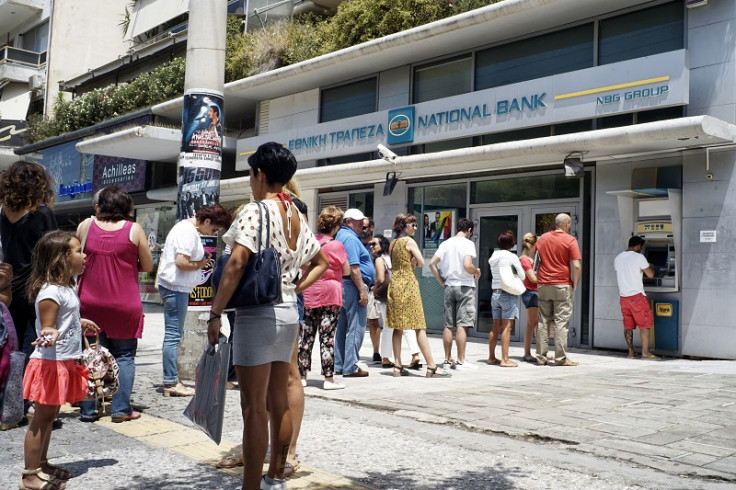Greek Referendum: Money, food and medicines shortages hit country as bailout vote approaches

With less than 24 hours left for Greece to decide their bailout fate, the country is left in the midst of a deepening economic crisis.
Banks in Greece report that they have a €1bn buffer until Monday 6 July, but bank transfers have been frozen and Greek citizens face a €60 limit on ATM cash withdraws.
Constantine Michalos, president of Athens Chamber of Commerce, has said that Greek banks are running out of money quickly, and that unless a deal is struck soon it is unlikely they will reopen on Tuesday.
The majority of Greece's pharmaceuticals and more than half of its food supplies are imported, but shops have been unable to pay suppliers for food and medicine due to a ban on bank transfers, which has triggered the shortage in basic provisions and vital drugs across the country.
Mary Papadopoulou, who owns a pharmacy in Athens, told the Guardian that she was in dire need of more medical supplies.
"We've run out of thyroxine [thyroid medicine] and unless things change dramatically we'll be having a lot more shortages next week," she said.
Thyroxine is used to treat hypothyroidism – a common medical condition that lead to comas if it is not treated.
Greek islands such as Santorini and Mykonos, visited by thousands of tourists this past week, are running out of basic foods such as sugar and flour, which will mean holidaymakers will be unable to buy vital medicines or even food within a matter of days if the banks fail to reopen, business chiefs have warned.
Some hotels are reported to have only enough food and drink in their kitchens to last another 10 days, but without any available cash, they are unable to restock.
The country has also seen more than 50,000 holidays cancelled each day last week, which is another heavy hit on the economy which relies heavily on tourism profits.
ΣÏνταγμα, μετÏÏŒ, συγκÎντÏωση ΟΧΙ, 3/7/2015 ΔÏόμος της ΑÏιστεÏάς #oxi2015 #dimopsifisma #oxi #lemeoxi #ΛΕΜΕΟΧΙ #GReferendum
Posted by Nikos Tavris on Friday, July 3, 2015
© Copyright IBTimes 2025. All rights reserved.





















